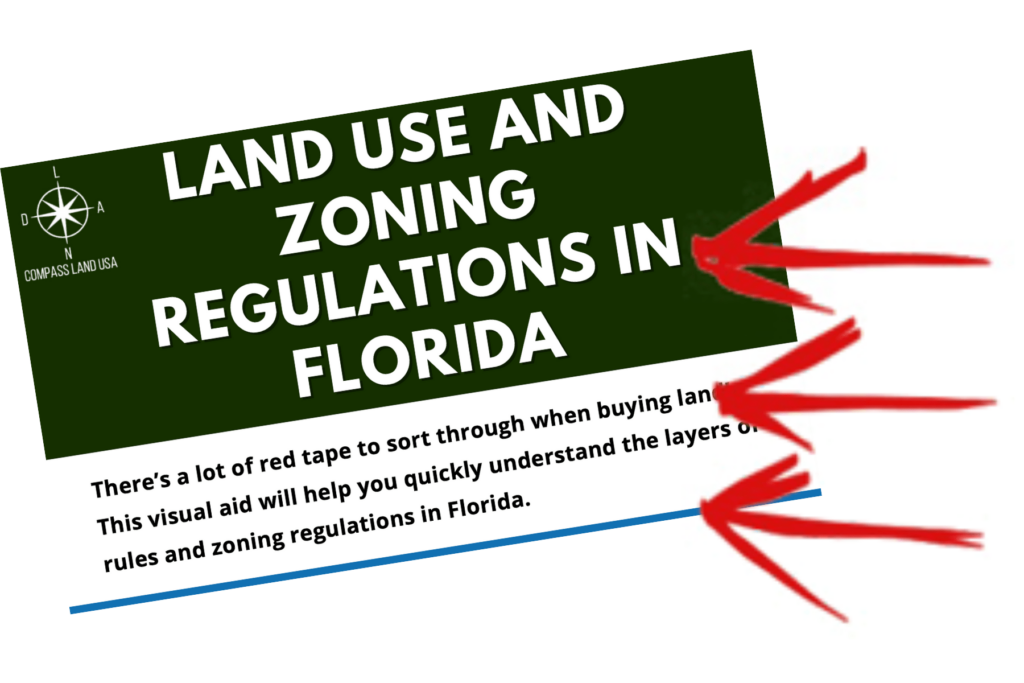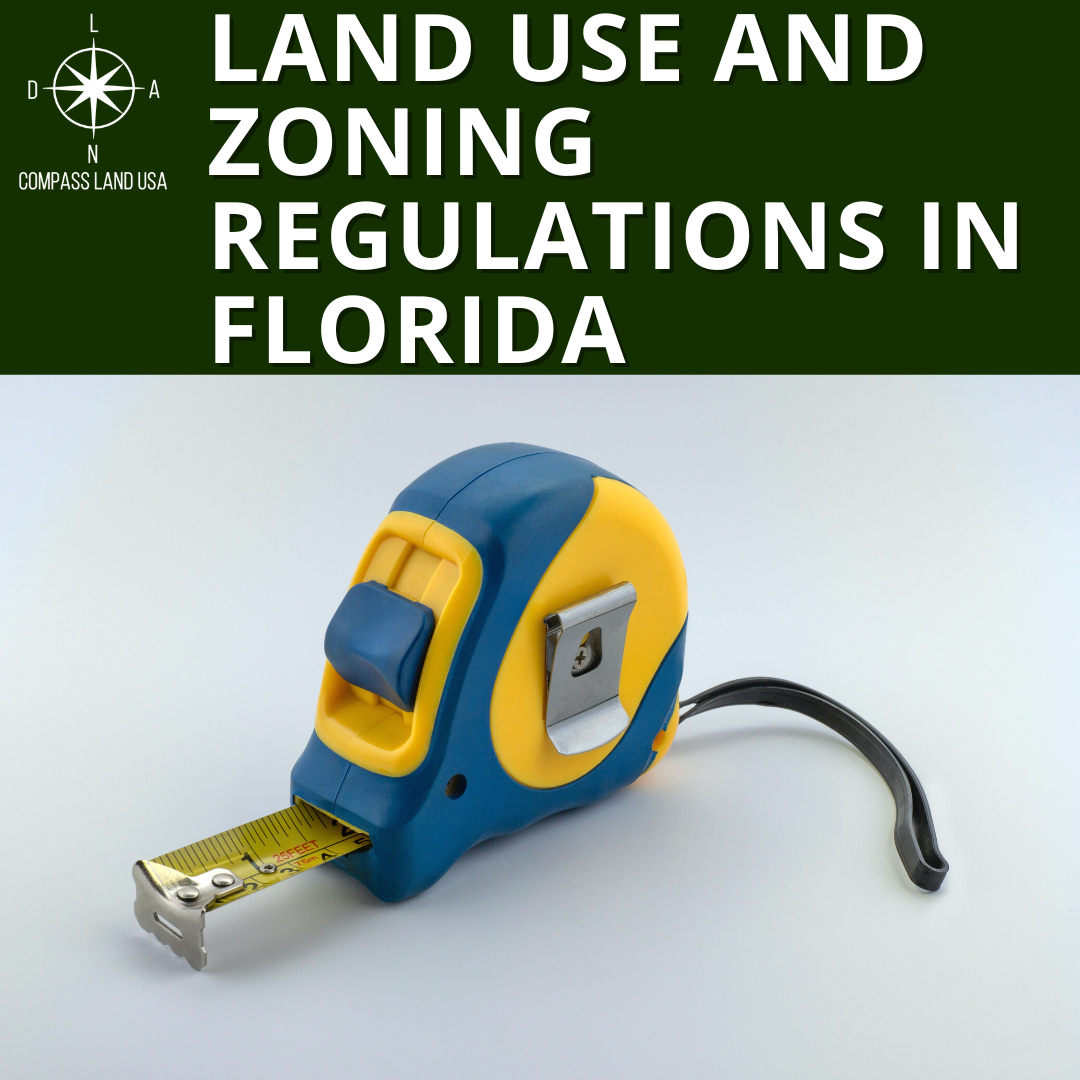Florida is a diverse state with a variety of land use and zoning regulations that apply to different areas of the state. Understanding these regulations is important for anyone who is considering buying or developing land in Florida.
Knowledge of land use and zoning regulations in Florida is important for anyone looking to develop or use land in the state. These regulations govern everything from the types of buildings that can be constructed, to the activities that can take place on a particular piece of land. In this guide, we will explain the basics of land use and zoning regulations in Florida, and how they affect different types of land use and development.
What are Land Use and Zoning Regulations?
Land use and zoning regulations are rules that govern how land can be used and developed. These regulations are typically put in place by local governments, and are designed to promote orderly and efficient land use, while protecting public health, safety, and welfare.
In Florida, land use and zoning regulations are primarily governed by the state’s Comprehensive Planning Act, which requires local governments to develop comprehensive plans that guide land use and development within their jurisdictions. These plans must be consistent with state law, and are subject to review by the state.
Types of Zoning Classifications in Florida

In Florida, there are several different types of zoning classifications that apply to land use and development. These include:
Residential Zoning: Residential zoning is used to designate areas of the state for residential use. The types of residential zoning classifications in Florida include single-family, multi-family, and mobile home park zoning.
Commercial Zoning: Commercial zoning is used to designate areas of the state for commercial use. The types of commercial zoning classifications in Florida include general commercial, office, and commercial planned development.
Industrial Zoning: Industrial zoning is used to designate areas of the state for industrial use. The types of industrial zoning classifications in Florida include light industrial, heavy industrial, and industrial planned development.
Agricultural Zoning: Agricultural zoning is used to designate areas of the state for agricultural use. The types of agricultural zoning classifications in Florida include agricultural, agricultural residential, and agricultural planned development.
Mixed-Use Zoning: Mixed-use zoning is used to designate areas of the state for multiple types of land use. The types of mixed-use zoning classifications in Florida include commercial-residential, industrial-commercial, and industrial-residential.
Special Zoning: Special zoning is used to designate areas of the state for specific uses, such as environmental protection, historic preservation, or military base reuse.
How Zoning Regulations Affect Land Use and Development

Zoning regulations affect land use and development in several ways.
One case is permitting. Zoning regulations specify what types of uses are permitted in each zoning classification. For example, residential zoning may allow single-family homes or multi-family homes, but not apartment buildings. Regulations normally requires landowners to obtain permits and approvals before building or making changes to the property.
Rules and regulations also specify how densely land can be developed in each zoning classification. Residential zoning may require a minimum lot size for single-family homes, and a different size will be required for multi-family homes and apartment buildings. Obviously, for a more densely populated lot, there should be a larger minimum lot size. This guarantees parking, green space, and communal parks for people living in apartments and high-rise buildings.
Zoning regulations specify how far buildings must be set back from property lines and other buildings. Residential zoning normally requires at least a 10-foot setback from the front property line. This means that your house, shed, pool, and other buildings on the property must be at least 10 feet away from the property boundaries.
Regulations also specify how tall buildings can be in each zoning classification. For example, commercial zoning may restrict building height to 35 feet, whereas residential zoning may be closer to 25 feet – you wouldn’t want your home to be completely dwarfed by a tower next door!
Another aspect specified by regulations is parking requirements, detailing out how much parking is required for each type of land use. Think of a commercially zoned lot, which may require one parking space for every 200 square feet of floor area.
Zoning regulations specify what types of signs are allowed and how large they can be. For example, commercial zoning may restrict the size and placement of signs on top of buildings, and residential zoning may restrict the placement of any signs whatsoever.
We covered a fair number of examples here, but not everything. Know that you can always look up the zoning ordinance for the county your property is in, and go through a complete list of zoning rules and regulations there.
Types of Land Use and Zoning Regulations
There are several types of land use and zoning regulations that are commonly used in Florida. These include:
- Zoning districts: Zoning districts are areas within a community that are designated for specific types of land use, such as residential, commercial, industrial, or agricultural. Each zoning district has its own set of rules and regulations that govern what types of activities can take place within that district.
- Land use categories: Land use categories are classifications that are used to describe the type of development that is permitted on a particular piece of land. These categories can include residential, commercial, industrial, agricultural, or mixed-use.
- Development standards: Development standards are rules that govern the design and construction of buildings and other structures. These standards can include requirements for setbacks, building height, lot coverage, and parking.
- Environmental regulations: Environmental regulations are rules that are designed to protect natural resources, such as wetlands, waterways, and wildlife habitats. These regulations can limit the types of development that can take place on certain types of land.
How Land Use and Zoning Regulations affect Different Types of Projects and Development
The severity that land use and zoning regulations affect different types of projects and development can vary depending on the specific regulations that are in place.
In a residential development zoning regulations can limit the number of homes that can be built on a particular piece of land, as well as the size and height of those homes. Development standards can also require homes to be set back from the street, and to provide a certain amount of open space.
Zoning regulations for commercial development can limit the types of businesses that can operate in a particular area, as well as the size and height of commercial buildings. Development standards can also require businesses to provide a certain amount of parking, and to be setback from residential areas.
In an industrial park, zoning regulations can limit the types of industrial activities and factories that can take place in a particular area, as well as the size and height of industrial buildings. Environmental regulations can also require industrial developments to take steps to protect natural resources.
Regulations can protect agricultural land from other types of development, and can mandate certain farming practices to be followed. Environmental regulations can also require farmers to take steps to protect natural resources, such as waterways and wetlands, and how to reduce their waste.
Understanding the land use and zoning regulations in Florida is important for anyone who is considering buying or developing land in the state. These regulations govern everything from the types of buildings that can be constructed, to the activities that can take place on a particular piece of land. By understanding these regulations and how they affect different types of land use and development, individuals and businesses can make informed decisions about how to best use and develop their land.
Are you looking for land in Florida? You can text/call us anytime at (313) 349-0434 for help with your land journey! 😊

Want a Visual to Help You?
You can get yourself a copy – just fill out the form below!
A Visual Layout of Land Use and Zoning Regulations in Florida
Just put in your name and email, click “Download” and we’ll send you the free visual aid right away.

